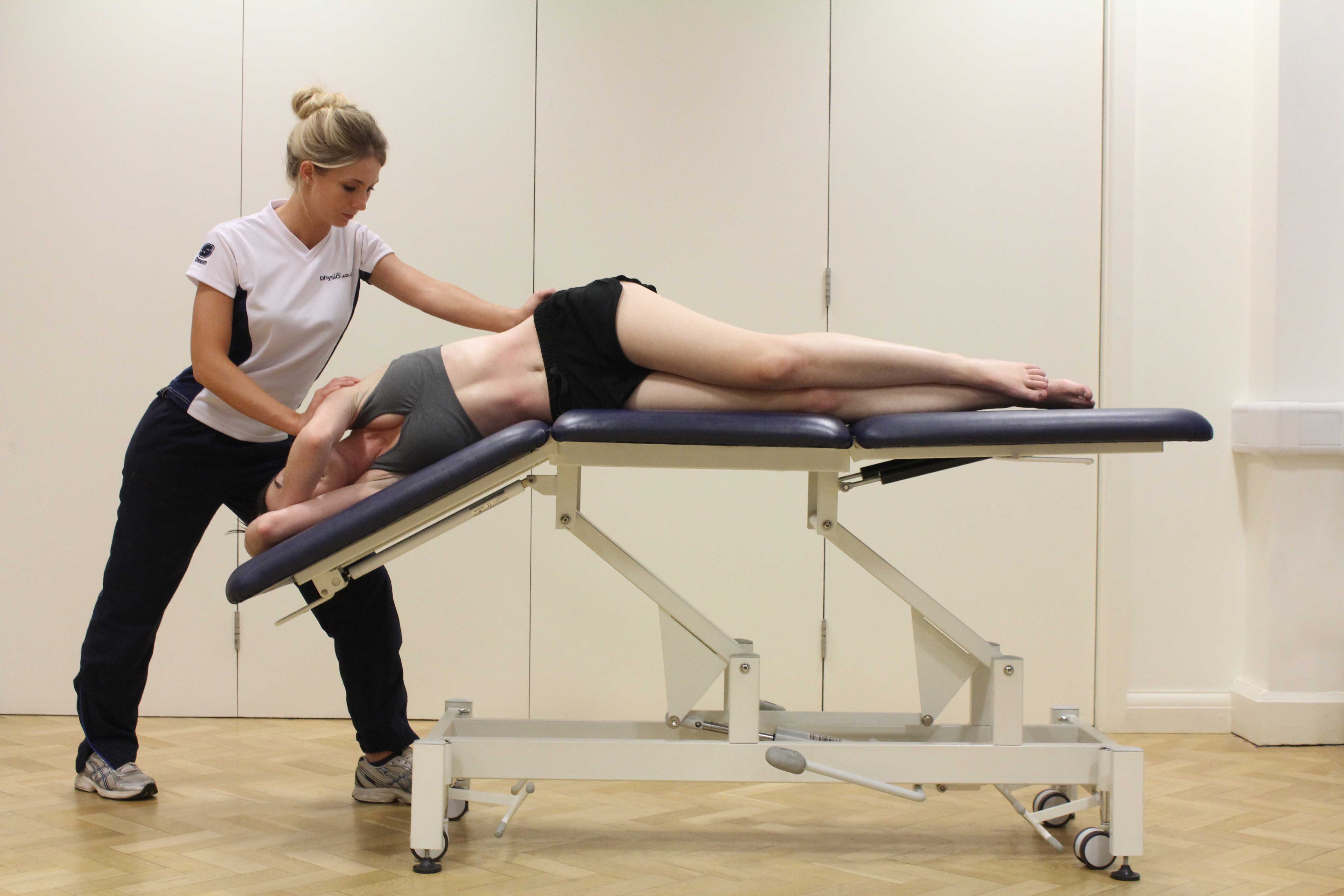Many of the symptoms of obstructive and restrictive respiratory illness are similar. Shortness of breath is the most common and has the most immediate effect on the patient. For most people the restriction is only evident with exertion, however, with severe conditions shortness of breath can occur even at rest. A persistent cough, excess sputum production and low mood are also common symptoms.
 Above: Postural drainage and chest clearence exercises assisted by a specilaist therapist
Above: Postural drainage and chest clearence exercises assisted by a specilaist therapistCommon examples of obstructive respiratory conditions that are frequently treated with physiotherapy include;
- Asthma
- Bronchiectasis
- Chronic Bronchitis
- COPD (Chronic Obstructive Pulmonary Disorder)
- Cystic Fibrosis
- Emphysema
- Hypoventilatory Syndrome
How is an obstructive respiratory condition diagnosed?
Your doctor will typically diagnose your respiratory condition following a series of tests to rule out alternate issues. If your condition is severe or shows little signs of recovery then further investigation may be necessary using x-ray or endoscope. Depending on the diagnosis and severity of your condition your doctor may then refer you to see a specialist respiratory physiotherapist.
For more information on how physiotherapy can help treat obstructive respiratory conditions, or to book yourself an appointment, please contact us via email at office@physio.co.uk or call us on 0330 088 7800.
What would treatment for obstructive respiratory conditions involve?
One of the principle methods of opening the airways affected by obstructive respiratory illness is through the use of bronchodilators. This group of medications relaxes the smooth muscle that lines the airways. Various type of anti-inflammatories help reduce swelling in the lung tissues, further opening up the airways. Respiratory Physiotherapy is an important part healthcare for serious lung conditions. Some of the benefits include
- Clearing excess secretions from the chest reducing risk of secondary infections and making the work of breathing easier.
- Breathing control techniques to reduce the work of the accessory breathing muscles, reducing tiredness and anxiety.
- Rehabilitation programs can help improve exercise tolerance and reduce the demand put on the respiratory system during activity.
You can contact us directly to arrange an assessment and we can advise you if further treatment is recommended, and give you advice on self-management. To arrange an appointment please email office@physio.co.uk or call 0330 088 7800.

 0330 088 7800
0330 088 7800


































